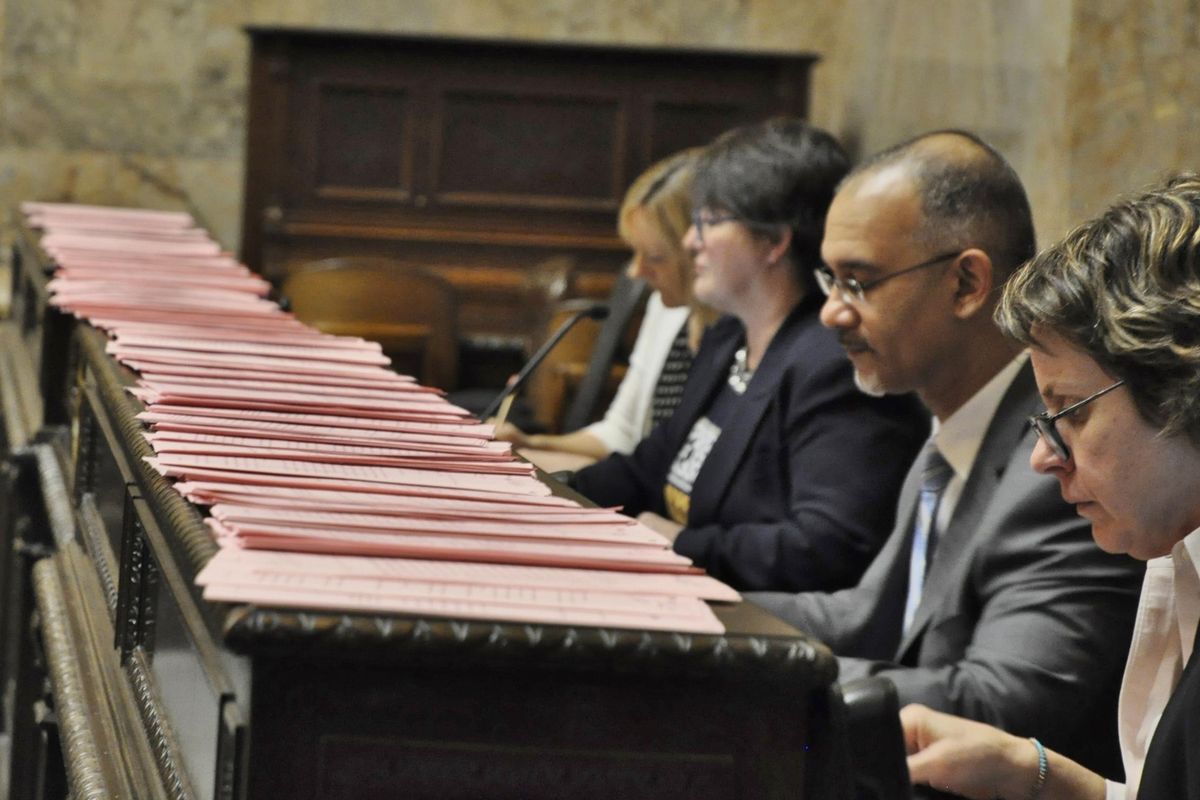Washington House passes $44.9 billion budget on party-line vote

OLYMPIA – House Democrats pushed through a $44.9 billion two-year budget Friday that they said keeps faith with the contract between the generations in Washington. Republicans criticized it as a plan that grows government without any regard for where the money will come from.
The 2017-19 general operating budget proposal has money for public schools and colleges, social services and health care, most state programs and state employee salaries.
House Appropriations Chairman Timm Ormsby, D-Spokane, said the spending plan recognizes Washington state residents are family and adopts a “families first” attitude.
“We don’t step over people on our way to success,” Ormsby said. “We’re giving our kids and our grandkids a shot at success.”
But Republicans repeatedly pointed out that the proposal spends more money than the state currently expects to take in through current taxes and fees, even though a strong economy already is providing some $3 billion more than the 2015-17 budget spent.
Democrats will begin holding hearings next Monday on a separate package of tax increases.
That’s not the way most people and businesses in the rest of the state put together a budget, Rep. Mike Volz, R-Spokane, said.
“In the real Washington, what people do is figure out how much money they have … and prioritize their spending knowing they can’t get everything they want,” Volz said. The budget seems based on the theory that “enough is never enough and we always need more.”
Before the budget passed on a 50-48 party line vote, however, lawmakers acknowledged this was only a step in a long process. The Senate has passed a much different budget, with different spending priorities and which doesn’t call for new taxes. But that budget proposes a massive rewrite of the state’s property tax laws to shift the burden of school taxes from much of the state to Seattle, Bellevue and a few other communities, most of them in the central Puget Sound.
That’s not part of the tax package House Democrats have developed, and at one point Ormsby chided Republicans for ignoring the increase in property taxes for some residents that the Senate budget proposes.
Debate on the budget stretched over two days, starting on Thursday afternoon with a stack of 63 amendments. Some members tried to add spending for programs, limit how the state could raise revenue or make political statements wrapped in budgetary terms. Many amendments lived or died on the same partisan split that eventually carried the House Democrats’ budget.
The House budget has some significant differences beyond the property tax shift from the Senate budget passed a week ago. The House budget spends about $1.5 billion more, including higher amounts for public schools and social services. The House budget calls for a freeze in state college tuition, compared to an inflationary increase of 2.4 percent in the Senate plan. The Senate plan rejects most labor contracts negotiated with state workers and offers them instead a raise of $500 a year in each budget year; the House budget accepts the contracts.
Members of the House and Senate budget committees will now begin negotiating a compromise spending plan that can pass one chamber where Democrats have a two-seat majority and the other where Republicans have control by a single seat.
The Legislature’s 105-day session is scheduled to be over on April 23. If they haven’t settled on a compromise budget and several other contentious issues by then, lawmakers will be called into a special session.